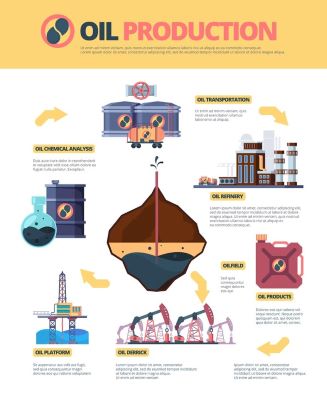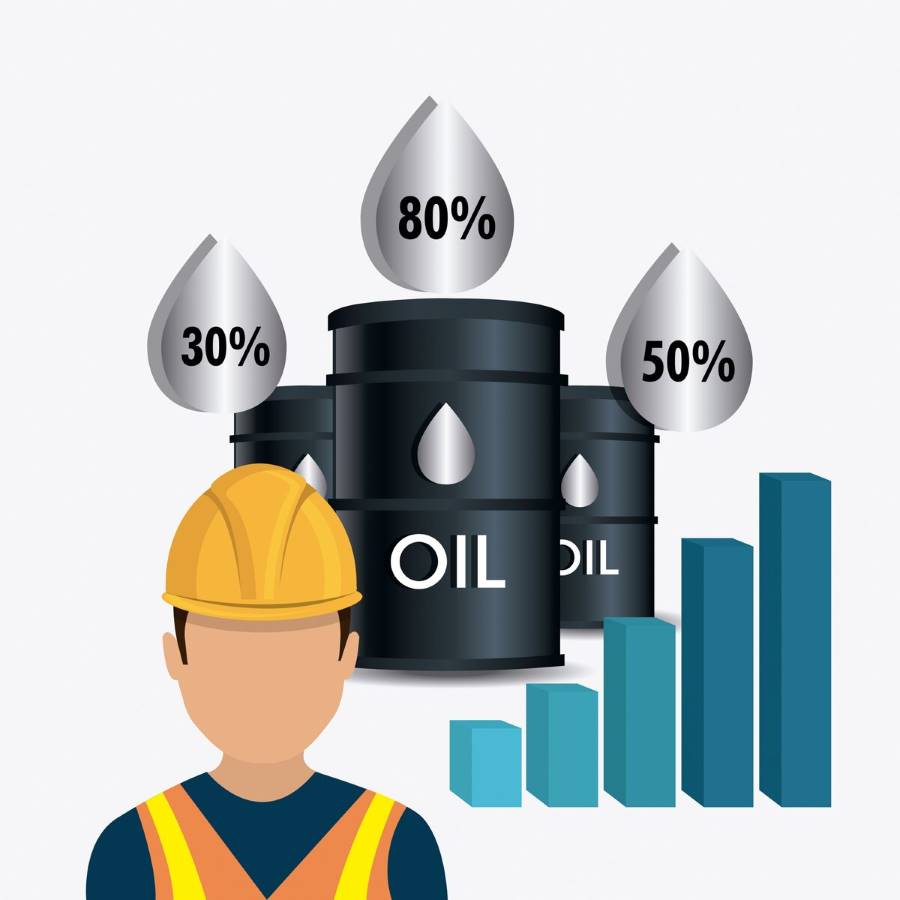Oil facilitators are essential to maintaining smooth operations and optimizing productivity. We’ll examine the nuances of oil facilitation in this extensive guide, covering everything from its definition to the new developments influencing its direction.
Recognizing the Function of Oil Facilitator
Oil Facilitators: What Are They?
The adept individuals in charge of optimizing and simplifying the procedures involved in oil production are known as oil facilitators. Their specialty is in overseeing the many elements of oil production, from human resources to technical developments.
Relevance to the Oil Sector
One cannot stress the importance of oil facilitators enough. Their work directly affects industry progress, cost-effectiveness, and manufacturing efficiency.
Important Elements of Oil Facilitator

Technological Progress
Staying up-to-date with technical innovations is essential for oil facilitators in the constantly changing oil sector. This section explores the newest innovations that are reshaping the industry.
Human Knowledge
Even more important than technology is the human factor. Oil facilitators depend on their experience to lead teams, make wise judgments, and overcome obstacles specific to the sector.
The Advantages of Effective Oil Facilitation
Better Methods of Production
Improved production procedures, as a result of effective oil facilitation, provide a consistent and dependable supply of oil. Discover the benefits of optimal facilitation for the sector.
Economical Remedies
One of the main results of successful oil facilitation is cost-effectiveness. Learn the tactics and methods that make the oil production industry financially viable.
Obstacles in the Oil Facilitation Industry
Adherence to Regulations

For oil facilitators, navigating complicated rules is a frequent difficulty. Learn about the regulatory environment and the ways that facilitators may guarantee compliance.
Impact on the Environment
An important factor to take into account is how oil production affects the environment. Examine the difficulties and developments in the oil facilitation industry that address environmental issues.
New Developments in Oil Settlement
Integration of Artificial Intelligence
Oil facilitation is transforming thanks to the incorporation of artificial intelligence. Examine how AI is helping the industry make better decisions and optimize procedures.
Ecological Methods
Eco-friendly methods are being used by oil facilitators as sustainability becomes more important. Find out what’s new in environmentally friendly oil production.
The Function of Digitalization in Enabling Oil
Internet of Things in Oil Production
The oil production industry is changing due to the Internet of Things. Find out how IoT devices are improving oil facilitation monitoring and control.
Analytics of Data for Optimization

Oil facilitators are changing the game with data analytics. Find out how the industry is becoming more efficient and optimized thanks to data-driven insights.
Case Studies: Triumphant Narratives of Oil Facilitator
Real-World Applications
Examine actual case studies of well-executed oil facilitation initiatives. Learn important lessons from successful cases in the business.
Knowledge Acquired
Recognize the takeaways from previous experiences, offering prospective oil facilitators a path forward.
Prospects for Oil Facilitation in the Future
Horizontal Innovations
Examine how oil facilitation will develop in the future and the technologies that will influence the sector in the years to come.
Expected Events
Examine upcoming changes that are expected to affect the duties and function of oil facilitators.
The Best Methods for Facilitating Oil
Ongoing Education
In an ever-changing sector, never-ending education is crucial. Learn the best ways to remain informed about developments in the business.
Working together and establishing connections
For oil facilitators, networking and collaboration are essential to success. Discover useful techniques for establishing business relationships.
Overcoming Frequently Held Assumptions
Busting Myths
We are dispelling widespread rumors and misunderstandings around oil facilitation and elucidating business procedures.
Dispelling Uncertainties
Dispel any ambiguities and myths that can prevent a thorough grasp of the oil facilitation industry.
An Oil Facilitator Day in the Life
Accountabilities
Explore the day-to-day duties of an oil facilitator and learn about their position in the sector.
Everyday Obstacles
Recognize the obstacles that oil facilitators must confront regularly and how they resolve them.
Education and Training for Future Oil Facilitator
Paths in Education
Examine training courses and courses for those who want to work as oil facilitators.
Acquisition of Skills
Determine the critical abilities and skills required for success in the oil facilitation industry.
Industry Networking: Linking Global Oil Facilitator
The Value of Networking
Building a network is essential for career advancement. Recognize how crucial it is to establish a network in the oil facilitation industry.
Collaboration Platforms
Find forums and gatherings that promote cooperation amongst oil facilitators worldwide.
To sum up, oil facilitators are essential to the current and future of the oil industry. Their effect is significant, ranging from adopting technical breakthroughs to tackling environmental issues. Oil facilitators need to remain adaptable, welcome change, and pave the path for a sustainable and productive future as the sector develops further.
Pros of oil facilitator
Effectiveness:
Processes are streamlined by the product/service, saving time and effort.
increases output by mechanizing tedious work.
Expense-effectiveness:
lowers total expenses by increasing productivity.
Long-term operating cost reductions may result from this.
Creativity:
often uses innovative technology or techniques.
promotes an innovative culture within the company.
Client Contentment:
enhances the client experience by providing better or quicker service.
meets or beyond what the consumer has requested.
Advantage of Competition:
distinguishes the company from rivals.
improves the market standing of the business.
Cons of oil facilitators
Expenses of Implementation:
Setup fees at first might be rather costly.
demands financial investment for staff training.
Technical Problems:
Possibility of errors, malfunctions, or system breakdowns.
interruptions caused by maintenance or upgrades.
Opposition to Change:
Workers might be resistant to adjusting to new procedures.
Challenges in change management.
reliance on technology
susceptible to power outages or disturbances in technology.
hazards to cybersecurity and data breaches.
Over-Subscription to Automation
Decreased human intervention might result in mistakes.
Insufficient human touch in dealing with customers.
It’s critical to consider these benefits and drawbacks in light of the particular requirements and context of the product or service in issue.
Answers to Common Questions (FAQs)
What role do oil facilitators play in the industry’s environmental sustainability?
Through the implementation and promotion of environmentally friendly methods in oil production, oil facilitators play a critical role in advancing environmental sustainability. To lessen the industry’s negative environmental effects, this entails cutting down on waste, lowering carbon emissions, and investigating alternate energy sources.
In the present market environment, what are the main obstacles that oil facilitators must overcome?
Oil facilitators have several difficulties, including managing complex regulatory environments, attending to environmental issues, and keeping up with the quick pace of technical development. In addition, the dynamic oil business may face difficulties due to geopolitical and economic uncertainties.
How may prospective employees be ready for a job as an oil facilitator?
Prospective oil facilitators may get ready for their jobs by going along the right educational route, doing an internship to get practical experience, and honing critical abilities like decision-making, problem-solving, and effective communication. Success also depends on a never-ending learning process and remaining current with industry developments.
What technological advancements are anticipated in the oil facilitation sector?
Innovative innovations in the oil facilitation business include the use of artificial intelligence, improvements in Internet of Things (IoT) technology, and an increasing focus on sustainable methods. Enhancing productivity, lessening environmental effects, and influencing the direction of oil production are the goals of these inventions.
hat venues encourage industry cooperation and how crucial is networking for oil facilitators?
For oil facilitators to advance professionally, networking is essential. It enables them to collaborate, remain up to date on industry trends, and share information. Oil facilitators may network, exchange experiences, and have a positive impact on the field’s overall progress via venues including industry conferences, seminars, and online forums.